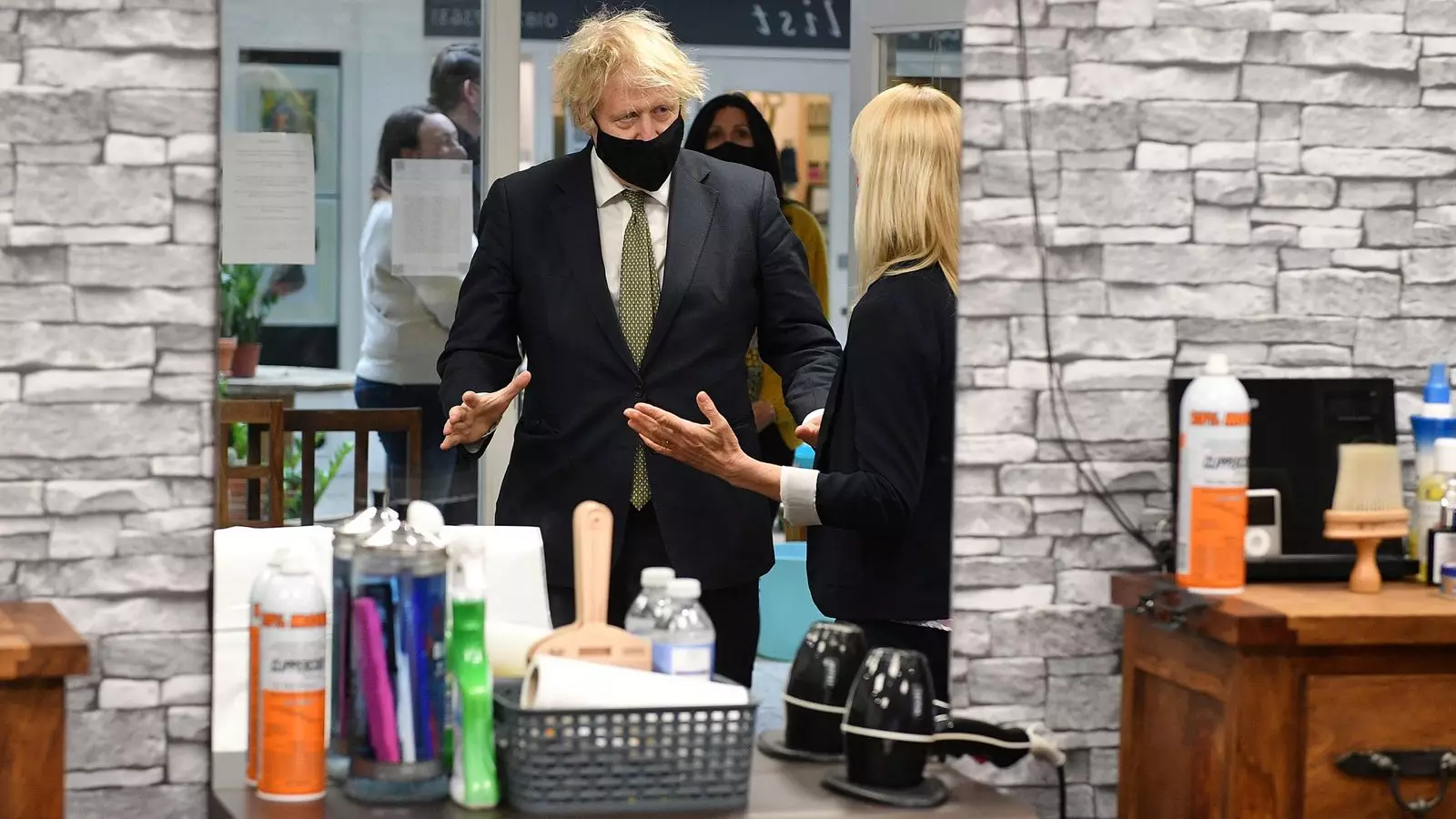According to Dominic Cummings, Boris Johnson, the former British Prime Minister, once approached his senior scientific advisers with an absurd proposal. Cummings revealed in his evidence statement to the COVID inquiry that Johnson inquired about the possibility of using a “special hair dryer” to kill COVID by blowing it up one’s nose. This revelation paints a picture of a leader who entertained unorthodox ideas, seeking unconventional solutions to a global crisis. While it is important for leaders to think creatively in times of uncertainty, it is equally crucial that their ideas are grounded in scientific knowledge and expertise.
Cummings also claims that within Downing Street, doubts lingered about whether Johnson himself was the source of false narratives. He highlights a particular instance where the government was accused of introducing masks due to focus groups, despite knowing their ineffectiveness. As Cummings clarifies, this claim was “the opposite of the truth.” Such allegations raise concerns about the transparency and integrity of the government’s decision-making process. In times of crisis, it is imperative for leaders to prioritize accurate information and dispel any rumors or misinformation that could further compromise public trust.
The Prime Minister’s Desire to Divert Attention
During the autumn of 2020, Cummings recounts a period when Johnson grew weary of the COVID-19 pandemic dominating the headlines. Seeking diversion, Johnson allegedly asked his adviser to come up with a “dead cat” strategy, a tactic aimed at shifting media focus through the introduction of a distracting story. However, Cummings firmly rejected this approach, emphasizing that COVID-19 required constant attention and effective management. While leaders may sometimes seek ways to redirect public attention, it is essential that their actions prioritize the well-being and safety of the population above all else.
Cummings further reveals that Johnson faced considerable personal distractions during the early stages of the pandemic. The prime minister was simultaneously dealing with a divorce, financial difficulties stemming from it, his girlfriend’s spending plans for their official residence, and accusations from an ex-girlfriend in the media. These revelations raise concerns about the level of focus and dedication Johnson was able to allocate to managing the crisis effectively. In times of national emergency, citizens expect their leaders to prioritize their duties and responsibilities, putting personal matters aside for the greater good.
As the COVID-19 pandemic began to unfold in Italy, Cummings claims that some senior figures within Number 10 displayed a concerning lack of seriousness towards the developing crisis. He described their attitudes as “unbelievably bullish” and alleges that some even laughed at the severity of the situation in Italy. This anecdote highlights the importance of leaders adopting a vigilant and empathetic approach to crises. Laughing or underestimating the impact of a pandemic can have dire consequences, undermining the necessary measures for containment and mitigation.
Dominic Cummings’ evidence statement to the COVID inquiry provides a glimpse into the controversial decisions and distractions surrounding Boris Johnson during the pandemic. The incidence of proposing bizarre ideas, doubts about the source of false stories, a desire for diversion, personal controversies, and a lack of seriousness within the leadership raise questions about effective crisis management. Leaders must demonstrate sound judgment, prioritize accurate information, and exhibit unwavering dedication to the well-being of their citizens during times of crisis. The lessons learned from these revelations should serve as reminders for future leaders and governments to act responsibly and transparently in the face of similar challenges.


Leave a Reply